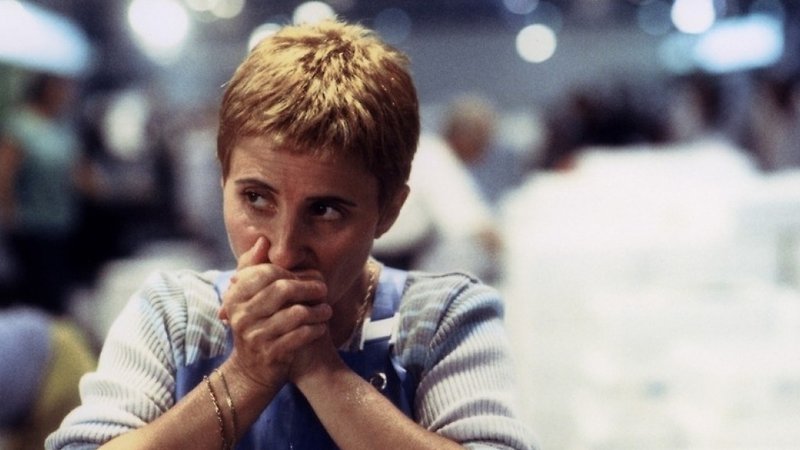
Screened as part of NZIFF 2001
La ville est tranquille 2000
This new film from the director of Marius and Jeanette may well be his masterpiece. Guédiguian, the ciné-laureate of Marseilles’ working (and jobless) classes, takes in a much wider cross-section of his native city in this film. He’s achieved an unruly panorama of barely intersecting lives which pulses with the life of the city. Beneath the perpetual bustle, his perceptions of urban isolation and callousness run deep.
The superb Ariane Ascaride, the director’s wife and constant leading actor, is pivotal as the indomitable Michèle, leading a life that might seem ridiculously appalling if it weren’t so real. Holding down a night job as a fish-packer, she’s turning tricks by day to feed the habit of her addict teenage daughter, tending the daughter’s tiny baby and evading the abuse of an alcoholic husband. Michèle refuses to countenance unemployment as an excuse for degraded behaviour in anyone else, but the effort of being such a paragon is beginning to tell.
The other characters, whose interconnectedness is revealed only gradually, include a black breakdancer, who is enthralled by the older white middle-class art teacher he met in prison; her philandering politico husband; a porn addict taxi driver shielded by his devoted, blinkered parents; and a Sartrian bar owner with the underworld connections to score Michèle’s heroin at wholesale prices. This is a more emotionally involving film than Altman has ever made – and the ending, accentuated by Janis Joplin’s anguished Cry Baby on the soundtrack, is like a cataclysm, years in the making. — BG
In Guédiguian’s hands, there’s nothing falsely pious about the naturalistic approach, nor is there a whiff of the artist slumming amongst the common folk – he knows his city from the dirt up… Part of Robert Guédiguian’s plan de la cité is the pulse that underlies all this action; the movie is alive, just as the city is. And it does end with an image of hope, one that might sound trite in synopsis but does not ring false. The plain staging, the nonchalant lounging of the people on screen, the evident non-actors, create a communal tableau that earns its upswell. It does not solve anything, but this ambitious, serious movie honors its subject by looking at it. — Robert Horton, Film Comment, 1-2/01